Activists in New York Rally as Disaster Capitalists Circle Puerto Rico (Photo Essay)
Author Naomi Klein teams up with other journalists, Puerto Rican organizational leaders and other activists to maintain focus on the embattled island. Panelists at Wednesday night's "The Battle for Paradise" event at Cooper Union in New York City. From left, “Democracy Now!” co-host Juan González, Puerto Rican environmental activist Katia Avilés-Vázquez, author Naomi Klein, UPROSE Executive Director Elizabeth Yeampierre, and Edwin Morales, vice president of the Puerto Rico Teachers Federation. (Photo courtesy of Daniel Efram, ©2018 Efram Photography)
Panelists at Wednesday night's "The Battle for Paradise" event at Cooper Union in New York City. From left, “Democracy Now!” co-host Juan González, Puerto Rican environmental activist Katia Avilés-Vázquez, author Naomi Klein, UPROSE Executive Director Elizabeth Yeampierre, and Edwin Morales, vice president of the Puerto Rico Teachers Federation. (Photo courtesy of Daniel Efram, ©2018 Efram Photography)
 Photo Essay
Click here to view photos from both events.
Photo Essay
Click here to view photos from both events.
Cooper Union’s Great Hall in New York City was the setting Wednesday for an at-capacity discussion on the subject of Naomi Klein’s new book, “The Battle for Paradise: Puerto Rico Takes On the Disaster Capitalists.”
Presented by Our Power Puerto Rico, UPROSE, Climate Justice Alliance, The Intercept and Haymarket Books, the “Battle for Paradise” event drew hundreds of people concerned about an ongoing crisis that has become more critical since Hurricane Maria hit Puerto Rico on Sept. 20, 2017.
The panel, introduced by The Intercept Editor-In-Chief Betsy Reed, included Klein, UPROSE Executive Director Elizabeth Yeampierre, “Democracy Now!” co-host Juan González, Puerto Rican environmental activist Katia Avilés-Vázquez and Edwin Morales, vice president of the Puerto Rico Teachers Federation. The audience was told that royalties from book sales for the evening would be donated to Junta Gente (“The People Together”), a consortium of community groups on the island.
The conversation addressed concerns that FEMA’s evacuation of residents from Puerto Rico, rather than facilitating necessary rebuilding efforts, will instead set the stage for a massive land-grab, further enabling privatization and leading to eventual destruction of the island as the residents have known it.
“We forget that Puerto Rico is the question when it comes to national oppression and to colonialism right here in this country,” González said. “We can often talk about what’s going on [with] the Rohingya in Myanmar, with the Irish versus the U.K., with what China is doing to Tibet, the conflict between the Israelis and the Palestinians, but here in the United States, it is Puerto Rico that is our colony,” he said, adding that it is “the one colony that the American people have the most ability to have an impact on.”
Morales detailed the effect of the disaster on Puerto Rico’s education system. “The secretary of education [Betsy DeVos] made an announcement right after the hurricane, that this was the best opportunity to build to another education system and reshape the institution in favor of the corporate interests,” he said. “By that time, she tried to close many schools. … [T]here [were] bigger plans to transform education using the natural disaster in a way to control people.” He continued, “They imposed charter school models and vouchers. We never had this before. Puerto Rico has a long history of fighting against charter schools and they imposed it using all of the trauma in Puerto Rico as a way to shock people and continue to reshape the island in favor of the wealthy.”
Morales’ views about the U.S. government’s long-term plans for Puerto Rico resonate with Klein’s own, first introduced in her book, “The Shock Doctrine: The Rise of Disaster Capitalism.” In Hurricane Maria’s wake, Klein, who is also a senior correspondent for The Intercept, traveled to the island to research and produce a short documentary, which was shown at Cooper Union and provided the basis for her follow-up book, “The Battle for Paradise: Puerto Rico Takes On the Disaster Capitalists.”
Klein laid out her argument in a June 6 interview with “Democracy Now!” “It’s state-sponsored mass killing,” she said. “That’s what we’re talking about here, because maybe there wasn’t the intent to kill, but there was the [government’s] knowledge that the infrastructure was being destroyed.”
Hurricane Maria is estimated to have caused more than $90 billion in damage in Puerto Rico alone. Though President Donald Trump’s administration claimed the catastrophic storm caused 64 deaths on the island, a study by Harvard University estimated that the death toll could actually climb as high as 4,645—70 times the official total.
Wednesday’s panel was just one in a series of events in New York to raise awareness, as well as alarm, about Puerto Rico’s future. Last weekend, throngs of protesters gathered near the United Nations headquarters in Manhattan to demand an accurate accounting of Puerto Rican deaths resulting from Hurricane Maria. That demonstration kicked off a week of actions by activists and allies that will conclude Sunday with the popular National Puerto Rican Day parade.
Yeampierre was on the scene at the weekend protest, telling the crowd, “It should be a horror to the world that 5,000 people died under a government that didn’t care enough to find out people were burying family members in their backyard!”
Also in attendance was Jonathan Soto, associate vice president of strategic initiatives at Union Theological Seminary. “What we’ve witnessed is a public crucifixion of our people in Puerto Rico,” he said.
Several of the rally’s speakers pointed to their families and roots in Puerto Rico and noted that hundreds of people have left the island and resettled in New York since the disaster.
According to the Harvard study, the average household in Puerto Rico endured approximately 84 days without electricity, 68 days without water and 41 days without cell phone service following the hurricane.
Watch a recording of Wednesday’s event (via The Intercept) below:
Your support matters…Independent journalism is under threat and overshadowed by heavily funded mainstream media.
You can help level the playing field. Become a member.
Your tax-deductible contribution keeps us digging beneath the headlines to give you thought-provoking, investigative reporting and analysis that unearths what's really happening- without compromise.
Give today to support our courageous, independent journalists.
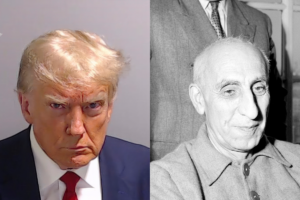
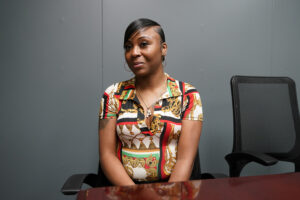
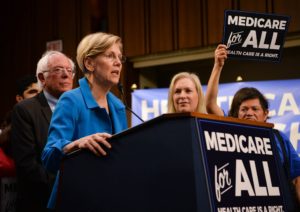
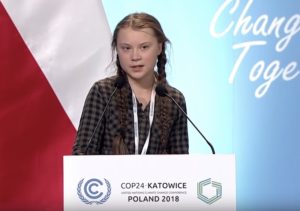
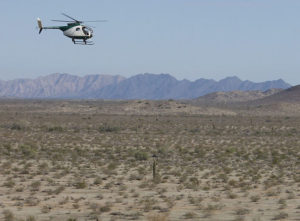
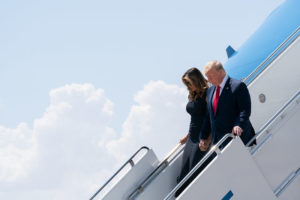
You need to be a supporter to comment.
There are currently no responses to this article.
Be the first to respond.